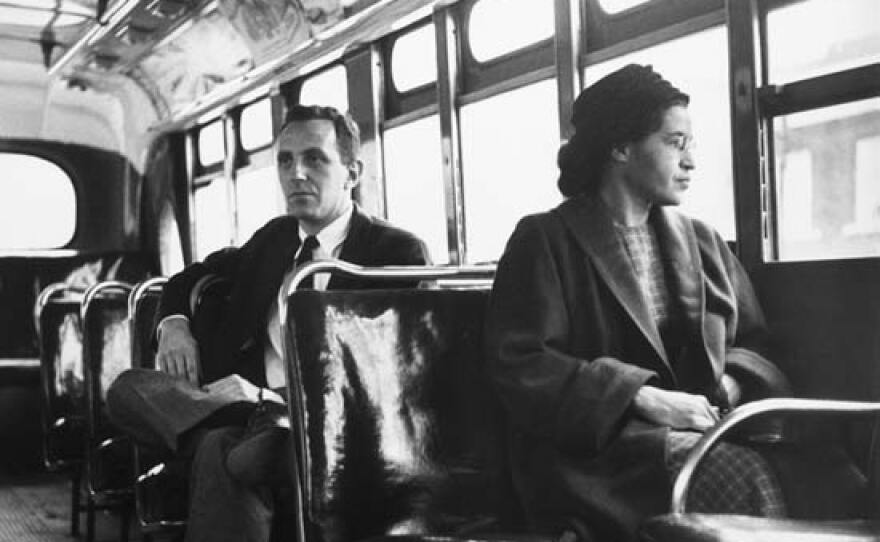She would have been 100 today, and as is customary on birthdays like these, tributes are being made to the iconic civil rights activist.

The U.S. Post Office issued a stamp in her honor, which goes on sale today. The USPS says it's one of several recent stamps that honor civil rights.
The Postal Service launched a new set of civil rights stamps Jan. 1 with the Emancipation Proclamation Forever Stamp, issued at The National Archives in Washington, DC. In August, the series will culminate with the dedication of a stamp recognizing the 50th anniversary of the historic March on Washington.
There's also a "National Day of Courage" event being held at the Henry Ford Museum in Dearborn today featuring "nationally-recognized speakers, live music, and dramatic presentations."
The Museum released this television ad asking people to speak out in honor of Rosa Parks and to "match fear with strength" when speaking out.
http://www.youtube.com/watch?feature=player_embedded&v=i785ZtDY7VI
You can watch the day's events live here:
Much is being written about Parks in honor of what would be her 100th birthday.
Jeanne Theoharis, professor of political science at Brooklyn College of the City University of New York, has a list of "10 Things You Didn't Know About Rosa Parks" over on HuffPo. One of them points to how Parks made her way to Detroit.
The Parks family had to leave Montgomery eight months after the boycott ended. She lived for most of that time in Detroit in the heart of the ghetto, just a mile from the epicenter of the 1967 Detroit riot. There, she spent nearly five decades organizing and protesting racial inequality in "the promised land that wasn't."
One of those "10 Things" should have mentioned this woman:

She's Claudette Colvin. NPR's Margot Adler did a story on her in 2009.
Few people know the story of Claudette Colvin: When she was 15, she refused to move to the back of the bus and give up her seat to a white person — nine months before Rosa Parks did the very same thing.
Colvin says civil rights leaders didn't think she would be the right 'poster child' for the movement. So they chose Parks instead.
When asked why she is little known and why everyone thinks only of Rosa Parks, Colvin says the NAACP and all the other black organizations felt Parks would be a good icon because "she was an adult. They didn't think teenagers would be reliable." She also says Parks had the right hair and the right look. "Her skin texture was the kind that people associate with the middle class," says Colvin. "She fit that profile."
Take a listen:





